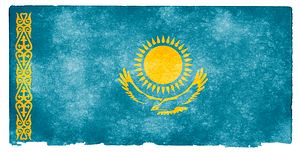A court in the northeastern city of Semey granted an early release from prison to Mukhtar Dzhakishev, a once ubiquitous political figure in Kazakhstan and manager of the country’s uranium company, on the grounds of worsening health conditions. This represents a breakthrough in a long series of attempts to obtain an early release for Dzhakishev, regarded by many as a political prisoner.
Semey, known as Semipalatinsk until 2007, is a symbol of the nuclear experience of Kazakhstan. During Soviet times, scientists carried out hundreds of nuclear tests in the area around the city, which became known as one of the most radioactive sites in the world.
Dzhakishev was sentenced to spend 14 years in prison in 2010 on charges of corruption. He spent time in maximum security prisons in Karaganda, Almaty, and Semey. When he was first arrested in May 2009, Dzhakishev had served as the head of Kazatomprom, the state-owned uranium company, for 11 years.
Throughout the years, the UN Human Rights Committee, along with a wide range of human rights watchdogs, said the trials that led to Dzhakishev’s sentencing lacked due process. These flaws, UNHCR argued, should have warranted a release and, possibly, a new trial “subject to the principles of fair and public hearings, access to counsel and other procedural safeguards.”
Observers widely consider Dzhakishev a political prisoner. Yet, it is unclear whether his early support for opposition banker Mukhtar Ablyazov or his ideas on how to modernize the nuclear sector in the country had a decisive effect on his sentencing.
Since his foundation of the opposition movement Democratic Choice of Kazakhstan in 2001, Ablyazov cozied up with other young ascendant businessmen, including Dzhakishev. At the time of Ablyazov’s arrest in 2002, Dzhakishev was “a typical state manager, building up a modern nuclear industry in the country,” Yevgeni Zhovtis, chairman of the Bureau for Human Rights in Almaty, told The Diplomat.
During his tenure at Kazatomprom, Dzhakishev transformed the former Soviet enterprise into a player in the global uranium market. Kazakhstan is the world’s largest uranium producer. Sources, including Dzhakishev himself, say that his arrest was linked to a geopolitical struggle between Kazatomprom and Rosatom, the Russian uranium company. Removed from a decision-making position in the industry, Dzhakishev could no longer interfere with the Uranium One deal, under which Rosatom bought a controlling stake in the Canadian company with mining interests in Kazakhstan and the United States.
Resized into a more compact company by Dzhakishev’s successor Vladimir Shkolnik, Kazatomprom listed some of its shares in the London Stock Exchange and in the Astana International Financial Center in 2018, in an effort to kick-start the belated privatization process of state assets in Kazakhstan. These timid developments, however, cannot compare to Dzhakishev’s ambitions to turn Kazatomprom into a global player in the uranium market.
In the past two years, Dzhakishev had been denied parole twice, despite worsening health conditions. During his time in prison, he was also denied a visit to his dying mother and participation in her funeral. Other high-level prisoners were often granted such permissions under close supervision.
After being denied parole in July 2019, Dzhakishev’s fate seemed to be sealed by the enduring severity of Kazakhstan’s government toward those considered opponents of the political infrastructure. Whether too close to Ablyazov or too ambitious about the nuclear sector, Dzhakishev fell out of grace and was harshly punished for it.
Under the new order, Dzhakishev will be released on March 19, exactly one year after ex-President Nursultan Nazarbayev resigned, assuming that the prosecutors abstain from appealing the conditional release.































